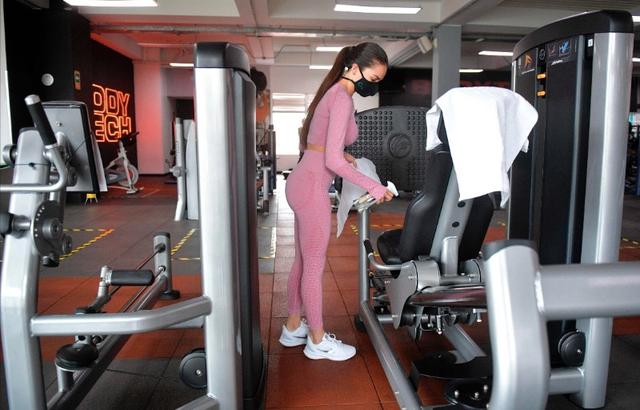How to Download and Install Minecraft?
The Next $1 Billion-level Match-3 RPG Mobile Game? Small Giant Games Releases New Zombie Theme
Among Us Was the Most Downloaded Mobile Game Worldwide for December 2020
How to Get Free Gold Bars in Candy Crush?
How to Get Free Coins on Habbo Hotel?
How to Get Free Gems in Dragon City?
How often do you do exercise after the outbreak of Covid-19? Doing more or doing less?

According to a recent study focusing on People’s physical exercise in the United Kingdom, since the outbreak of Covid-19, with more and more lockdown and quarantine measures, most of us have reduced the frequency of physical exercise, which is also not a surprising finding.
However, some of the people still maintain their exercise intensity as before the outbreak, while some of them even surpass than before. More surprisingly, most of the latter ones are all over 65 years old.
These findings haven’t been peer-reviewed yet, but more and more relevant evidence around the world indicate that Covid-19 is reshaping the way we exercise, and some ways are even out of our expectation.
Over the past six months, lockdown policies and other epidemic prevention and control measures around the world have changed almost every aspect of our lives, affecting our work, families, education, emotions, expectations, social activities and personal health in ways that cannot be ignored.
Therefore, we should find that the epidemic may also have changed the time and the way we exercise. However, as some latest researches show, the nature of these changes is still unclear and may even change further.
According to one of the researches, researchers reported that in the first few weeks after the U.S. and other countries took the lockdown policies against Covid-19, Google’s search index of the word "exercise" exposed and stayed high for the next few months.
Many people also started to exercise more frequently after searching for relevant information. According to an online survey released in 139 countries by RunRepeat, most people who had kept exercising before the outbreak increased their exercises in the few weeks after the outbreak.
Another independent survey on 1,500 Japanese elderly founded that most of the interviewed elderly did not exercise frequently during the early days of the lockdown, but by June, they walked and exercised as often as they did before the outbreak.
However, another study in June this year, analyzing data from more than 450,000 anonymous smartphone users' step-counting apps, founded that the daily step counts of the smartphone users around the world saw a significant drop after the lockdown.
In the first 10 days after the lockdown measure, the average daily steps fell by about 5.5%. One month after the lockdown, the decline dropped by about 27%.
However, most data from the researches and surveys rely on the interviewees' memories of their exercises. These data are not guaranteed to be 100% accurate.
In addition, the findings of the researches and surveys are mainly presented from a macro perspective, and are not analyzed from the perspective of different ages, income levels, gender and other factors. These subdivisions may have different findings regarding people's exercises during the epidemic.
Young adults may have to balance child care, work and other commitments during an epidemic, the elderly would instead have more free time to exercise, Fisher said. In addition, the elderly may be more concerned about their immune system and physical health, which would further motivate them to exercise.
Fisher added that the current researches and surveys have their limitations and require longer study in a larger scale of people's exercise during the epidemic. For now, it seems that based on existing researches and surveys people want to monitor their own exercise to ensure that they maintain sufficient exercise.
"It's not surprising that lockdown policies have disrupted people's exercise habits." Fisher said, " But we cannot just assume that once lockdown policies are lifted, everyone will do exercise as often as before the epidemic. Of course, even the prevention and control measures may restrict everyone's exercise, we still need to help people get regular exercise. "

What are the Odds That Teenagers Contract COVID-19?

The Asphalt Around Roads Could Be A Problem

Argentina Mourned Over Maradona’s Death for Three Days, Why a Football Player Could Own Such an Honor? (II)

How to use the Force of Nothingness in Space to Manipulate Objects